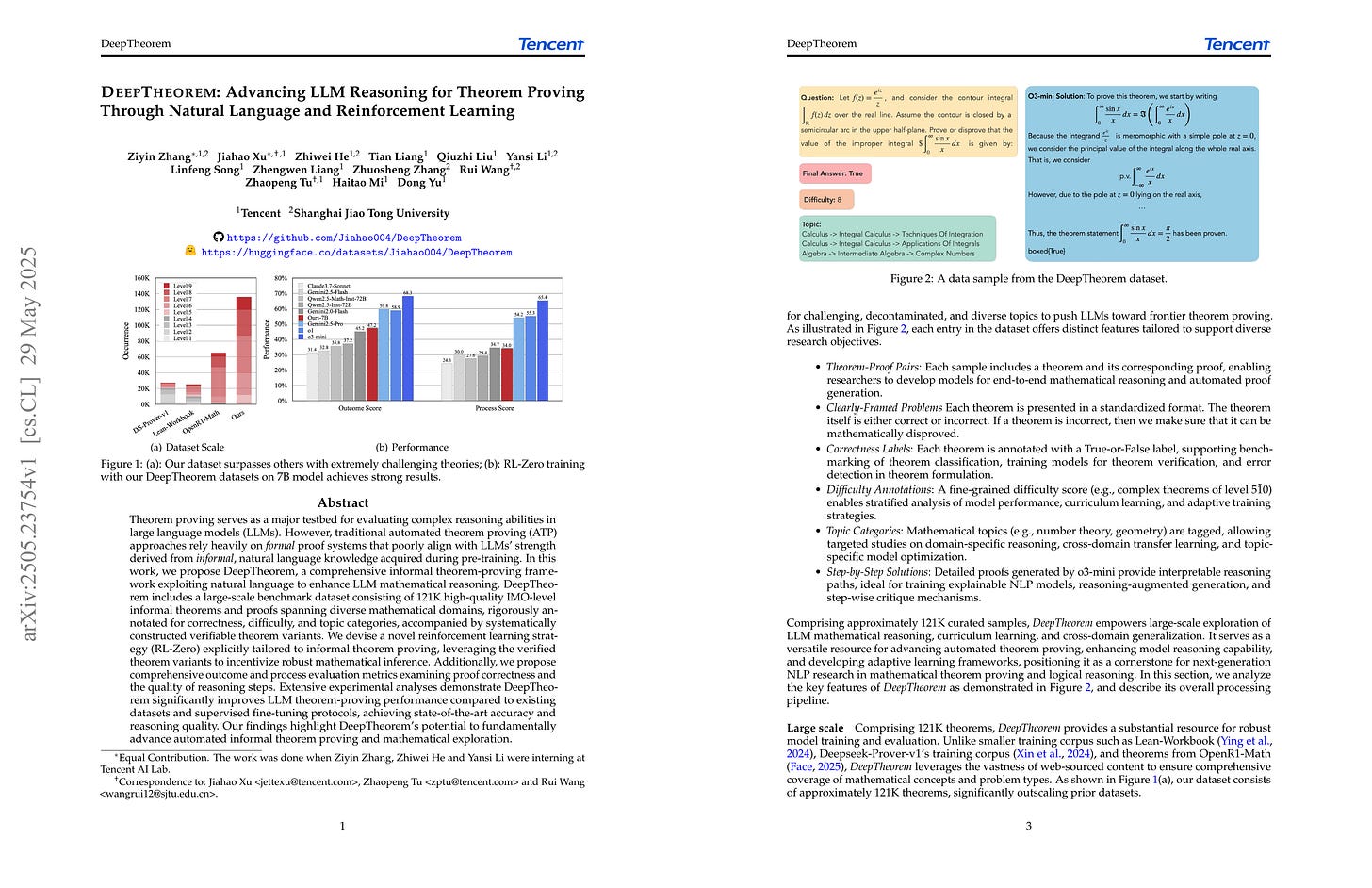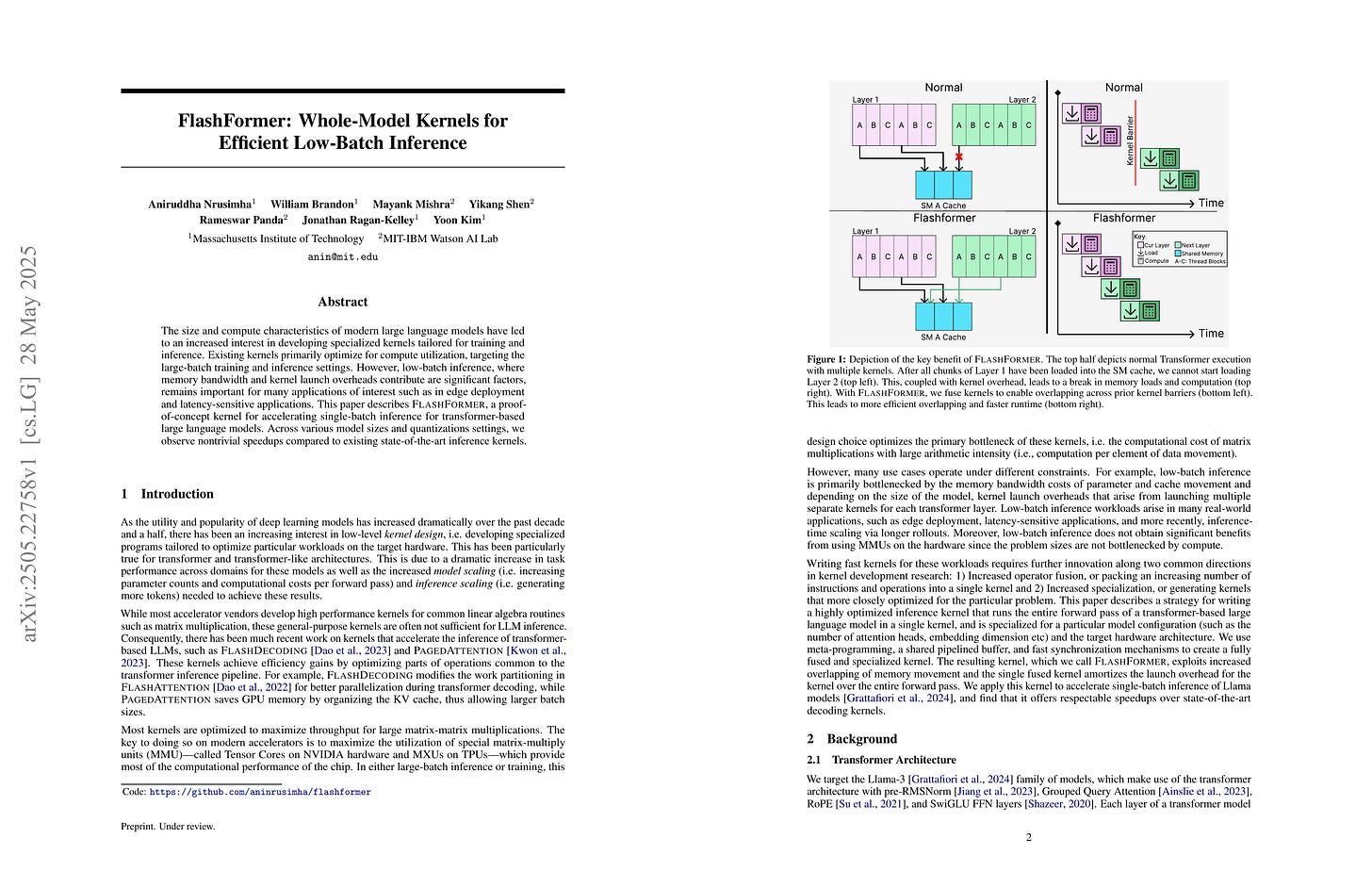2025년 5월 30일
DeepTheorem: Advancing LLM Reasoning for Theorem Proving Through Natural Language and Reinforcement Learning
(Ziyin Zhang, Jiahao Xu, Zhiwei He, Tian Liang, Qiuzhi Liu, Yansi Li, Linfeng Song, Zhengwen Liang, Zhuosheng Zhang, Rui Wang, Zhaopeng Tu, Haitao Mi, Dong Yu)
Theorem proving serves as a major testbed for evaluating complex reasoning abilities in large language models (LLMs). However, traditional automated theorem proving (ATP) approaches rely heavily on formal proof systems that poorly align with LLMs' strength derived from informal, natural language knowledge acquired during pre-training. In this work, we propose DeepTheorem, a comprehensive informal theorem-proving framework exploiting natural language to enhance LLM mathematical reasoning. DeepTheorem includes a large-scale benchmark dataset consisting of 121K high-quality IMO-level informal theorems and proofs spanning diverse mathematical domains, rigorously annotated for correctness, difficulty, and topic categories, accompanied by systematically constructed verifiable theorem variants. We devise a novel reinforcement learning strategy (RL-Zero) explicitly tailored to informal theorem proving, leveraging the verified theorem variants to incentivize robust mathematical inference. Additionally, we propose comprehensive outcome and process evaluation metrics examining proof correctness and the quality of reasoning steps. Extensive experimental analyses demonstrate DeepTheorem significantly improves LLM theorem-proving performance compared to existing datasets and supervised fine-tuning protocols, achieving state-of-the-art accuracy and reasoning quality. Our findings highlight DeepTheorem's potential to fundamentally advance automated informal theorem proving and mathematical exploration.
자연어 기반 증명 데이터셋. 자연어 기반이기 때문에 형식 언어처럼 증명을 검증할 수 없고, 그래서 명제가 옳은지 아닌지를 구분하게 만들었군요.
A dataset for theorem proving based on natural language. Since it's based on natural language, it's not possible to verify proofs as with formal languages. Therefore, they've designed it to distinguish whether theorems are correct or not.
#math #rl #reasoning
FlashFormer: Whole-Model Kernels for Efficient Low-Batch Inference
(Aniruddha Nrusimha, William Brandon, Mayank Mishra, Yikang Shen, Rameswar Panda, Jonathan Ragan-Kelley, Yoon Kim)
The size and compute characteristics of modern large language models have led to an increased interest in developing specialized kernels tailored for training and inference. Existing kernels primarily optimize for compute utilization, targeting the large-batch training and inference settings. However, low-batch inference, where memory bandwidth and kernel launch overheads contribute are significant factors, remains important for many applications of interest such as in edge deployment and latency-sensitive applications. This paper describes FlashFormer, a proof-of-concept kernel for accelerating single-batch inference for transformer-based large language models. Across various model sizes and quantizations settings, we observe nontrivial speedups compared to existing state-of-the-art inference kernels.
요즘 모델 전체를 하나의 커널로 만드는 시도들이 등장하네요 (https://hazyresearch.stanford.edu/blog/2025-05-27-no-bubbles).
Recently, there have been attempts to create a single kernel for an entire model (https://hazyresearch.stanford.edu/blog/2025-05-27-no-bubbles).
#efficiency






